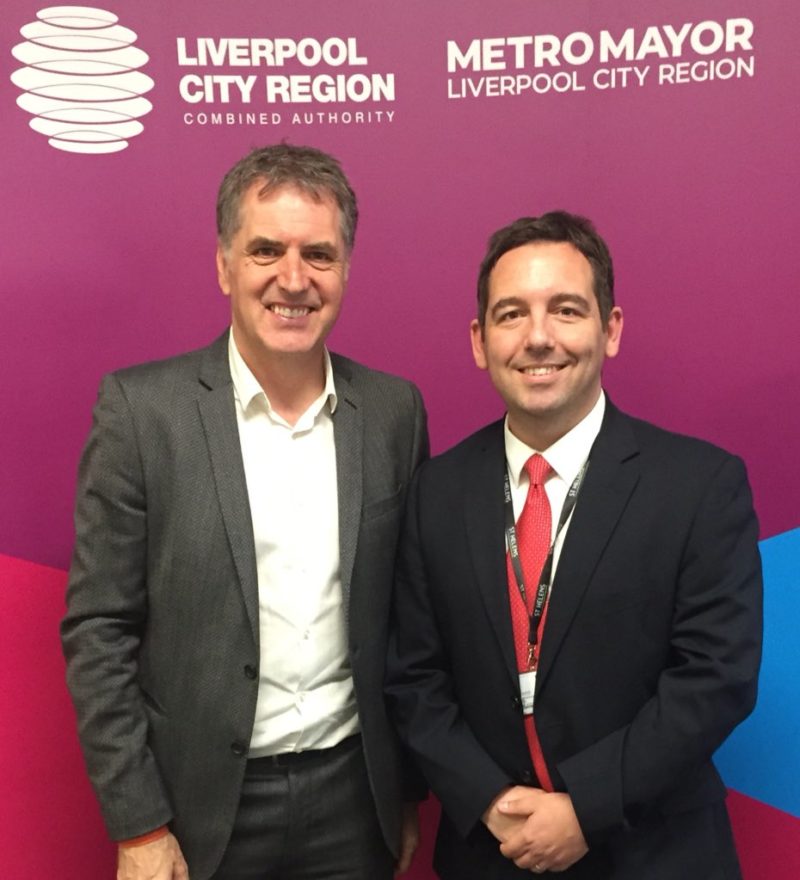
Building Back Better is the economic recovery plan for the whole of the city region and sets out how £1.4 billion in investment could unlock £8.8 billion projects, which are set to begin in the next 12 months.
These projects would create 94,000 permanent jobs, with a further 28,000 jobs in construction. Within St Helens borough this will include the ground-breaking Glass Futures initiative, which will see a national centre of excellence for glass innovation that will revolutionise glass production, based just outside St Helens Town Centre.
St Helens Borough Council Leader David Baines says: “I welcome this Recovery Plan, and I want to thank Metro Mayor Steve Rotheram, the officers at the City Region, and our officers in St Helens who have made sure our borough has played a full part in helping to put this excellent and deliverable plan together.
“I recommend everyone read the full plan, but in terms of the projects, there is one of particular interest here in St Helens. As everyone knows, our borough is world-renowned for glass manufacturing, and delivery of this Recovery Plan would ensure that this continues to be the case by delivering ‘Glass Futures’, the world’s first openly accessible, commercially available, multi-disciplinary glass melting facility with provision for research and development trials to decarbonise the UK glass industry.
“Myself and colleagues in St Helens are also very glad to see that as well as supporting businesses and bringing forward exciting growth projects this economic recovery plan has people at its heart.
“It is vital that we make the most of the opportunity we have now to address long-standing and systemic health and social inequalities both within our region and the nation as a whole, so I fully endorse this Plan’s ask of Government to give us the tools at a local level to help people with programmes of support to get people and our economy back on their feet, stronger than before.”
In addition to the economic recovery of the region, the plan also sets out an evidence-based, people-focused recovery programme across employment, skills, health and inequality. The plan proposes to work in partnership with government on the following programmes, to benefit the whole of the city region, including St Helens:
- A fully funded September Offer for school leavers to have a funded place in education, a job with training, apprenticeship or training programme, with increased levels of bursary funds for providers to respond to needs;
- A young person’s guarantee, ensuring that those aged under 25 who have been out of work for more than 6 months can get training, an apprenticeship or a job; this will require the delivery of substantial numbers of Kickstarter jobs across the City Region;
- Creation of increased numbers of apprenticeships (including degree apprenticeships and with increased focus on digital and agile skills) through incentives for businesses and further flexibilities around use of the apprenticeship levy;
- A clearly evidenced, business-led skills programme to deliver recovery as set out in the Association of Colleges Rebuild report;
- A digital skills programme to retrain businesses and workers for an increasingly digital world;
- A national digital poverty programme, which improves access to digital connectivity and devices for those who need it;
- A community and voluntary sector resilience programme which provides the right infrastructure and financial resource for the sector to engage with those impacted by the pandemic (separate to the broader support for social economy through Kindred);
- An enhanced schools catch-up programme to help pupils make up the lost learning, to ensure that young people are not permanently disadvantaged;
- A Liverpool City Region creative curriculum to capture the talent of young people in the City Region.
An investment of £329.5m will unlock 22,500 learning opportunities, safeguard 26,400 jobs, create 22,914 jobs and provide an economic output of £1.1bn.
St Helens Borough Council and key stakeholders are currently developing a St Helens economic recovery plan, which is scheduled to go to Cabinet in September.
